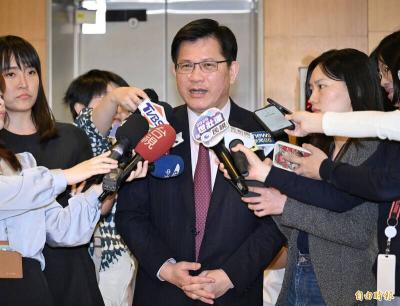As the Kuokuang Petrochemical Technology Corp has yet to secure approval from the Environmental Protection Administration for its new plant in Changhwa County, economics researchers yesterday urged the government to use the funds invested in the petrochemical industry for the green energy industry instead, arguing that the latter could generate more production and job opportunities.
Wang To-far (王塗發), an adjunct economics professor at National Taipei University, said that in its environmental impact assessment report, the company said construction of the plant — which was estimated to be completed in 16 years — would create a total output of NT$1.24 trillion (US$38 billion).
The company said that the construction would add NT$387.4 billion to the nation’s GDP, equivalent to 3.05 percent of last year’s GDP.
“However, if you break it down to the average of those 16 years, the total output would drop to NT$77.64 billion and the GDP contribution would be reduced to NT$24.21 billion. That only accounts for 0.19 percent of GDP in 2009,” Wang told a press conference yesterday hosted by Democratic Progressive Party Legislator Tien Chiu-chin (田秋堇).
The green energy industry, on the other hand, could give a strong boost to the nation’s industrial development, he said.
“If the Kuokuang project costs NT$500 billion and we invest the funds in green energy instead, it will create an additional output of at least NT$125 billion because it will simultaneously stimulate development of new electronics products,” Wang said.
Chen Chi-chung (陳吉仲) a professor at National Chung Hsing University’s Applied Economics Department, said that the external costs of Kuokuang’s project would be between NT$58.8 billion and NT$114 billion.
The plant could only generate economic benefits of about NT$51.6 billion, making it not worth the investment, Chen said.

Taiwan would welcome the return of Honduras as a diplomatic ally if its next president decides to make such a move, Minister of Foreign Affairs Lin Chia-lung (林佳龍) said yesterday. “Of course, we would welcome Honduras if they want to restore diplomatic ties with Taiwan after their elections,” Lin said at a meeting of the legislature’s Foreign Affairs and National Defense Committee, when asked to comment on statements made by two of the three Honduran presidential candidates during the presidential campaign in the Central American country. Taiwan is paying close attention to the region as a whole in the wake of a

Chinese Nationalist Party (KMT) Chairman Eric Chu (朱立倫), spokeswoman Yang Chih-yu (楊智伃) and Legislator Hsieh Lung-chieh (謝龍介) would be summoned by police for questioning for leading an illegal assembly on Thursday evening last week, Minister of the Interior Liu Shyh-fang (劉世芳) said today. The three KMT officials led an assembly outside the Taipei City Prosecutors’ Office, a restricted area where public assembly is not allowed, protesting the questioning of several KMT staff and searches of KMT headquarters and offices in a recall petition forgery case. Chu, Yang and Hsieh are all suspected of contravening the Assembly and Parade Act (集會遊行法) by holding

President William Lai (賴清德) has appointed former vice president Chen Chien-jen (陳建仁) to attend the late Pope Francis’ funeral at the Vatican City on Saturday on his behalf, the Ministry of Foreign Affairs said today. The Holy See announced Francis’ funeral would take place on Saturday at 10am in St Peter’s Square. The ministry expressed condolences over Francis’ passing and said that Chen would represent Taiwan at the funeral and offer condolences in person. Taiwan and the Vatican have a long-standing and close diplomatic relationship, the ministry said. Both sides agreed to have Chen represent Taiwan at the funeral, given his Catholic identity and

Taiwan would welcome the return of Honduras as a diplomatic ally if the next president of that country decides to make such a move, Minister of Foreign Affairs Lin Chia-lung (林佳龍) said today. “We would welcome Honduras if they want to restore diplomatic ties with Taiwan after their elections,” Lin said during a legislative hearing. At the same time, Taiwan is paying close attention to the Central American region as a whole, in the wake of a visit there earlier this year by US Secretary of State Marco Rubio, Lin said. Rubio visited Panama, El Salvador, Costa Rica and Guatemala, during which he